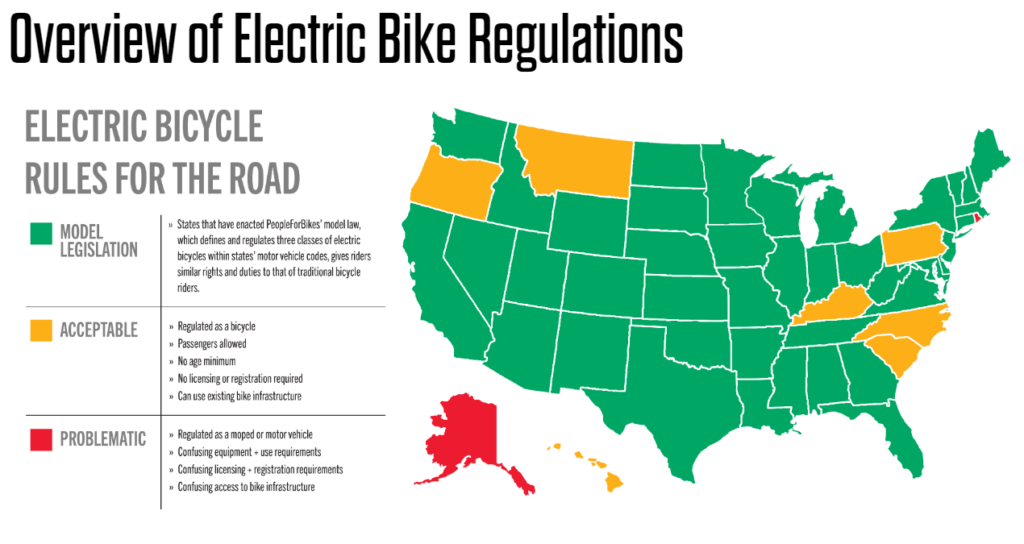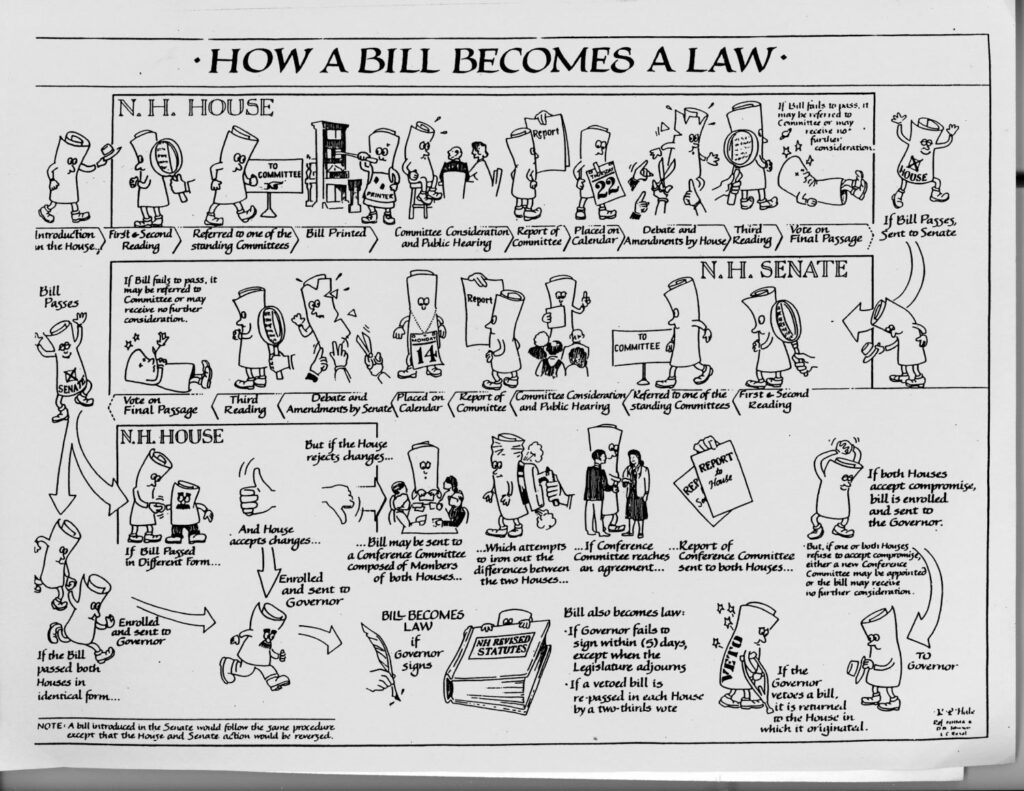Legislation to Regulate PEVs
During the past several months, BWANH and its affiliate the NH Rail Trails Coalition have been working with legislators to initiate legislation that will more clearly define and regulate “Personal Electric Vehicles” (PEVs) and “out-of-class electric vehicles” (OCEVs).
Although definitions may vary slightly, in general, PEVs may include, but not be limited to, electric bicycles, electric scooters, electric skateboards, electric one-wheels, and electric unicycles.
OCEVs are defined as electric vehicles that have power (wattage or horsepower) and or speed capabilities that exceed the current power and speed definitions of “e-bikes.”
The purpose of the legislation is to ensure that law enforcement individuals and agencies, municipalities, state and local regulators, retailers, and users of these devices can understand where they can legally and safely be used, and what, if any licensing and fees may apply.
There is much confusion about what constitutes an “electric bicycle” versus an “electric motorcycle”. This proposed legislation would add verbiage to existing laws to reduce or remove confusion regarding definitions and legal use of these vehicles and devices in New Hampshire.
Why is this important? Well, when the maximum horsepower and maximum speed capabilities of these electric vehicles fall into the same range of mopeds, gas-powered scooters, and motorcycles, it stands to reason that they should be considered and regulated as motor vehicles.
For example, speeds up to 85 MPH are claimed by some electric unicycle manufacturers, and “electric motorcycles” (with pedals) having 16 HP motors reaching 60 MPH via throttle control are being sold and used as if they were e-bikes. Note that e-bikes that fall into the existing legal framework of Classes 1 and 2 cannot exceed one HP (750 watts) with a powered max speed of 20 MPH. Class 3 e-bikes provide assistance up to 28 MPH when the rider is pedaling and they are generally not allowed on multi-use paths or rail trails. The new “PEV” category would cover all micro-mobility devices, with the pending legislation focused on higher horsepower and speeds. These devices, if legally categorized as “motor vehicles,” would automatically be banned on all federally funded rail trails.
The images below from the League Of American Bicyclists (LAB) summarize NH’s current laws defining electric bikes, similar to the laws that currently exist in most states.


With no existing requirements for registration, licensing, or operator safety certificates in New Hampshire, the high-power, fast PEVs are currently viewed as “toys.” At the same time, they are commonly seen on public roads being operated at 40+ MPH and even on rail trails. In fairness to those needing a relatively inexpensive cargo bike for transportation and errands, the proposed legislation would have these vehicles regulated much like conventional motor scooters and mopeds (under 5 HP) with registration and license fees under $10.00. When the horsepower and capable speed of the vehicle equal those of motorcycles, the fees and regulations would fall into that category.
Various state agencies, AAA, bike-ped advocates, rail trail users, and several state lawmakers understand the need for PEV regulation and support the BWANH / NHRTC efforts now underway. The draft text is in the Legislative Service Request (LSR) phase with Representative Linda Gould (Hillsborough County District 2) being the primary sponsor. The Office of Legislative Services is finalizing the text for LSR 24-2503. Once released, a House Bill number will be assigned, additional sponsors will sign-on, and the bill will enter the hearing phase. Stay tuned as we try to make our roads and rail trails safer and more enjoyable for all users.
For more information on how a bill becomes a law in NH, check out this page and the image below.




